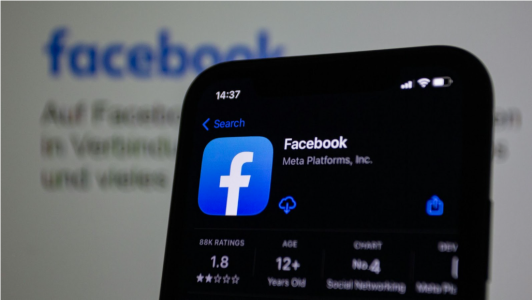Facebook’s upcoming changes: here’s what you need to know
By
Aubrey Razon
- Replies 1
Meta Platforms, the company behind major social media platforms such as Facebook, is making a significant change to its fact-checking policies. This shift raises important questions about the future of online content moderation.
But how is it changing?
Meta's decision to end its US fact-checking program and ease restrictions on topics like immigration and gender identity comes at a pivotal time.
With President-elect Donald Trump set to begin his second term, the timing of this policy change has generated significant attention and discussion.
The GrayVine community, having witnessed the shift from print to digital media, recognizes the importance of reliable information.
As we navigate the evolving digital landscape, staying vigilant about our news consumption is increasingly essential.
Since 2016, Meta's fact-checking program has played a role in addressing misinformation on its platforms. Now, the termination of this program is raising concerns among partners about the future of accurate information online.
Partner organizations, such as USA TODAY and the International Fact-Checking Network, have worked to clarify and debunk misleading claims.
Meanwhile, Meta's CEO, Mark Zuckerberg, has described the move as a return to the company’s focus on free expression.
"We've reached a point where it's just too many mistakes and too much censorship. It's time to get back to our roots around free expression," Zuckerberg explained.
However, the shift to a "community notes" model, where users can flag potentially misleading content, has drawn mixed reactions.
Some critics are concerned that this approach may allow misinformation to spread unchecked.
The changes at Meta are part of a broader trend of tech companies adapting to political and public opinion.
The appointment of Republican policy executive Joel Kaplan as global affairs head and the addition of Dana White, a Trump ally, to Meta's board suggest a shift in strategic direction.
Zuckerberg's comment on the recent US elections as a "cultural tipping point" indicates the influence of political factors on corporate decisions.
Meta's $1 million donation to Trump's inaugural fund signals a shift in its political engagement, marking a change from its past involvement in political contributions.
While Meta's policy shift primarily focuses on the US, it raises questions about the company's approach in other regions, especially the European Union, where tech regulations are stricter.
The EU's Digital Services Act requires tech companies to take proactive steps against illegal content and public security risks, with significant fines for non-compliance.
Meta's community notes model will likely attract attention from European regulators, particularly in light of the ongoing investigation into Elon Musk's X platform and its similar content moderation system.
As Meta begins to introduce Community Notes in the US, the responsibility for evaluating information increasingly falls on individual users.
This change marks a notable shift in the digital information landscape, with potential implications for how misinformation spreads.
For GrayVine readers, this development serves as a reminder to approach news critically.
It emphasizes the importance of consulting multiple sources of information, and users will now need to take on the role of fact-checkers by questioning, researching, and engaging in informed discussions.
 How do you ensure the news you consume is accurate? We'd love to hear your thoughts and strategies in the comments below and please remember to keep the discussion respectful.
How do you ensure the news you consume is accurate? We'd love to hear your thoughts and strategies in the comments below and please remember to keep the discussion respectful.
But how is it changing?
Meta's decision to end its US fact-checking program and ease restrictions on topics like immigration and gender identity comes at a pivotal time.
With President-elect Donald Trump set to begin his second term, the timing of this policy change has generated significant attention and discussion.
The GrayVine community, having witnessed the shift from print to digital media, recognizes the importance of reliable information.
As we navigate the evolving digital landscape, staying vigilant about our news consumption is increasingly essential.
Since 2016, Meta's fact-checking program has played a role in addressing misinformation on its platforms. Now, the termination of this program is raising concerns among partners about the future of accurate information online.
Partner organizations, such as USA TODAY and the International Fact-Checking Network, have worked to clarify and debunk misleading claims.
Meanwhile, Meta's CEO, Mark Zuckerberg, has described the move as a return to the company’s focus on free expression.
"We've reached a point where it's just too many mistakes and too much censorship. It's time to get back to our roots around free expression," Zuckerberg explained.
However, the shift to a "community notes" model, where users can flag potentially misleading content, has drawn mixed reactions.
Some critics are concerned that this approach may allow misinformation to spread unchecked.
The changes at Meta are part of a broader trend of tech companies adapting to political and public opinion.
The appointment of Republican policy executive Joel Kaplan as global affairs head and the addition of Dana White, a Trump ally, to Meta's board suggest a shift in strategic direction.
Zuckerberg's comment on the recent US elections as a "cultural tipping point" indicates the influence of political factors on corporate decisions.
Meta's $1 million donation to Trump's inaugural fund signals a shift in its political engagement, marking a change from its past involvement in political contributions.
While Meta's policy shift primarily focuses on the US, it raises questions about the company's approach in other regions, especially the European Union, where tech regulations are stricter.
The EU's Digital Services Act requires tech companies to take proactive steps against illegal content and public security risks, with significant fines for non-compliance.
Meta's community notes model will likely attract attention from European regulators, particularly in light of the ongoing investigation into Elon Musk's X platform and its similar content moderation system.
As Meta begins to introduce Community Notes in the US, the responsibility for evaluating information increasingly falls on individual users.
This change marks a notable shift in the digital information landscape, with potential implications for how misinformation spreads.
For GrayVine readers, this development serves as a reminder to approach news critically.
It emphasizes the importance of consulting multiple sources of information, and users will now need to take on the role of fact-checkers by questioning, researching, and engaging in informed discussions.
Key Takeaways
- Meta Platforms has ended its US fact-checking program and eased restrictions on discussions of sensitive topics.
- The changes, affecting major social media platforms like Facebook, Instagram, and Threads, reflect CEO Mark Zuckerberg's efforts to adjust to the new administration.
- The company will introduce a “community notes” model to address misleading information/
- The decision to end the fact-checking program was unexpected by partner organizations and has led to concerns about the possible rise in misinformation.
Last edited:







